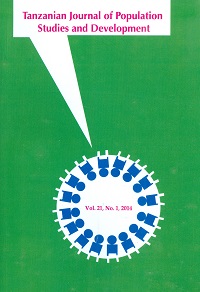Impacts of Improved Water Access on Water Vendors and Resellers in Dar es Salaam, Tanzania
Abstract
Increasing access to safe water remains a global priority even though the Millennium
Development Goals more than halved the number of people lacking access to water.
The Sustainable Development Goals, introduced in 2015, go further and seek universal
access to a source of safe water located on premises. In Dar es Salaam, there is a
significant gap between the number of households using safe water €”meaning water
free from contamination €”and the number of households with a source of safe water
on premises. Efforts to increase access on premises largely focus on expanding the
city ' s piped water network. Households lacking a direct connection to this network
must rely on informal suppliers such as vendors, household resellers, and kiosks.
Informal suppliers, also called small water enterprises, are an important part of
increasing water access in areas not currently served by the piped network. Yet, as Dar
es Salaam increases water access, these informal suppliers lose customers and income.
This paper uses interviews with these suppliers to explain the impacts and causes of
increased water access. It suggests ways that development policy can improve water
access without harming these informal suppliers.
Keywords: water access, water vending, water reselling, small water enterprises, Dar es
Salaam, Tanzania.


